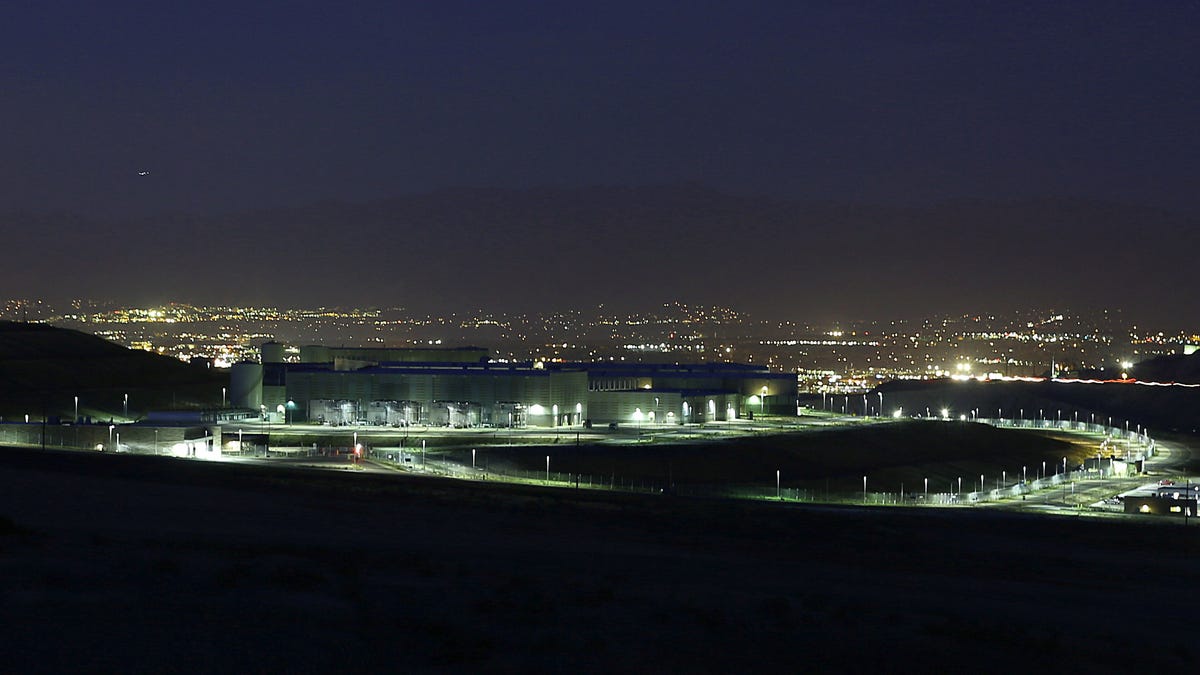NSA siphoning less phone data than thought -- but perhaps not for long, say reports
Two new reports say the agency's warrantless, bulk phone-records program has been sweeping up less metadata than popularly believed -- but that the government and the NSA still want it all.

The NSA has been sweeping up significantly less phone-call metadata than previously thought. But the agency would like to get its hands on as much as possible.
That's the gist of a pair of reports published Friday, one in The Washington Post, the other in The Wall Street Journal. The Post article cites unnamed "current and former US officials" in reporting that the controversial spy agency is collecting "less than 30 percent of all Americans' call records because of an inability to keep pace with the explosion in cell phone use." The Journal story, which also cites unnamed officials, pegs the figure at 20 percent or less.
It's been widely reported that under Section 215 of the Patriot Act, the NSA's warrantless phone-data collection program (a focus of President Obama's recent NSA reform speech) sucks up metadata on every phone call made in, to, and from the US.
And indeed, the Post story says this was more or less the case in 2006 but that as of last summer, the collection had dropped to data on about one-third of all calls. That's because, the Journal reports, the NSA has had technical problems stripping out location data from cell phone calls -- data it's not allowed to collect (though that prohibition hasn't stopped the agency from testing its systems' ability to handle bulk data on the location of Americans' cell phones). The Journal also says most cell phone records aren't covered by the court orders the NSA relies on to make phone companies hand over data.
"The government is taking steps to restore the collection...closer to previous levels," the Post story says. And the NSA "is preparing to seek court orders to compel wireless companies that currently do not hand over records to the government to do so," but it's been scrambling to address the technical issues.
"It's not simply the ability to go to the court and order some vendor to give you more records, but you have to make sure that the [agency's collection system] is prepared and ready to take the data and meet all the requirements of the court," a former official is quoted as saying in the Post article.
What might the 20 percent and 30 percent figures mean as far as the civil liberties implications of the call records program? Perhaps not much.
Judging from the reports, the NSA feels it's simply a matter of getting things working under the hood -- the agency remains focused on collecting all the metadata it says it's legally entitled to. (The NSA has long claimed it needs the "entire haystack" to find a terrorist "needle" -- despite assertions by review groups, lawmakers, and others that the metadata program is ineffective and a threat to the Constitution. And the agency's appetite for data may be unlikely to change under new leadership.)
And even with the drop in collection, the program has still swept up "tens of billions of records going back five years," the Post reports.
The legal rationale is also unaffected by the news. As Obama's NSA Review Group noted in its recent report (PDF), "under Section 215 as interpreted by the [Foreign Intelligence Surveillance Court, which oversees the NSA, the agency] is authorized to collect bulk telephony metadata and to store the call records of every telephone call made in, to, or from the United States."
Jameel Jaffer, the ACLU's deputy legal director, made this point in a statement in response to the Post and Journal reports. He said he didn't find the revelations "very reassuring."
"To accept [the NSA's and the government's] legal reasoning is to accept that they will eventually collect everything, even if they're not doing so already," Jaffer said. "They're arguing that they have the right to collect it all."
During his recent NSA reform speech, Obama said the phone-records program would be tweaked rather than scrapped outright. He said the government should no longer hold telephone metadata and that an inquiry would be made into how a third party could be developed to hold it. He also said he'd directed the attorney general and the Foreign Intelligence Surveillance Court to develop a way to require the court's permission before the NSA can access metadata in the database.

